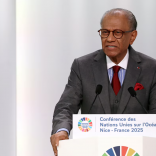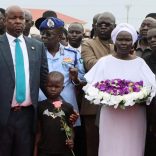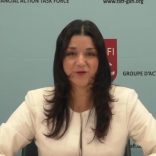Senegal reports mpox case, patient in isolation
World Bank’s Ajay Banga says access to electricity can unlock Africa’s demographic dividend

File photo: Bloomberg
World Bank President Ajay Banga said boosting access to electricity is the key to unlocking the demographic dividend in the world’s youngest continent.
Banga laid out a plan in which the World Bank, International Monetary Fund, African Development Bank and private investors may spend about $85 billion to bring power to 300 million people by 2030.
The World Bank is driving a program dubbed Mission 300 that’s seeking to break one of sub-Saharan Africa’s biggest impediments to growth: Almost half of its population, or 570 million people, have no access to electricity. That limits education, curbs employment and cuts productivity in a region where 70% of the population are younger than 30.
“Everyone talks about that as a demographic dividend, which it will be if you give them clean air, clean water, health, education and eventually a job,” Banga said in an an interview at the Mission 300 Africa Energy Summit in Dar es Salaam, Tanzania’s commercial capital, on Monday.
If not, “you’ll have young people coming out the pipe in 10, 12, 15 years who will have no hope, no optimism, who will be socially challenged” and may migrate, he said.
Under the program, the World Bank, the AfDB and other partners plan to give African countries grants and concessional finance. In return, they expect recipient governments to change regulations and create a conducive environment for private investment.
“It’s a pay for results kind of thing,” he said. “We can say you’ve committed to these things, you make the change, here’s the support. You don’t make the change, the money’s not coming.”
The scale of what’s needed was laid out in a dozen presentations at the summit by countries including Nigeria and the Democratic Republic of Congo, sub-Saharan Africa’s most populous and third-most populous nations.
To boost electricity access through grid expansions, off-grid technology such as mini-grids and solar home systems, more than $115 billion would be needed, the presentations showed. An additional 10 to 12 countries will likely come up with their own plans within about six months.
Multilateral funding
On Tuesday, the presidents of more than 20 African nations are due to sign up for the program. French President Emmanuel Macron will announce a contribution toward the African electrification drive, said Rémy Rioux, the head of French development bank Agence Française de Développement.












Leave a Reply
Be the First to Comment!
You must be logged in to post a comment.
You must be logged in to post a comment.